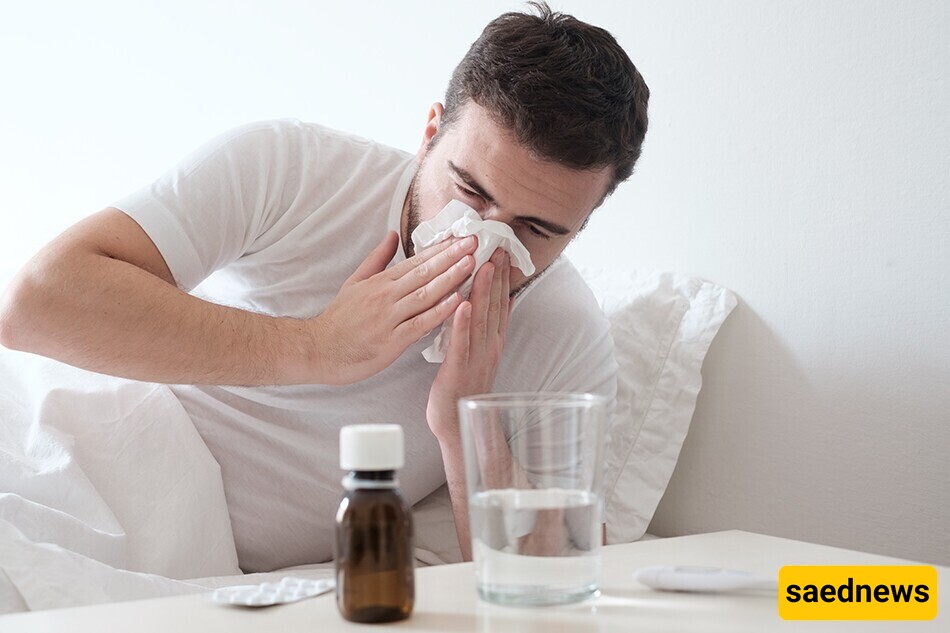When a cold hits, all you can do is lie in bed, surround yourself with vitamins, and wait for the virus to leave your body. But the best approach is to prevent the virus from entering your system in the first place.

A cold is a viral infection that affects the throat, nose, or upper respiratory tract. Various viruses can cause colds, but the most common culprit is the rhinovirus.
Cold symptoms such as a runny nose, sore throat, cough, nasal congestion, muscle aches, fatigue, headache, sneezing, and fever can be exhausting. While these symptoms are not dangerous, they typically last about two weeks before improving.
The key is to prevent the virus from entering your body. There are many ways to reduce the risk of catching a cold or shorten its duration.
Here are 10 practical methods to prevent colds throughout the year:
Dry air can dry out your respiratory passages, making it easier for germs to settle in and cause infections. Using a humidifier keeps your nasal membranes moist, helping trap and eliminate germs before they cause illness.
However, make sure to clean your humidifier regularly. A warm, damp environment can encourage mold and bacteria growth, which might trigger allergy-like symptoms.
Research suggests that people with low vitamin D levels are more prone to upper respiratory infections, which cause symptoms like cough, sore throat, and congestion. That’s because vitamin D is essential for activating immune responses.
Some studies recommend consuming at least 400 IU of vitamin D daily to prevent respiratory infections. Good dietary sources include salmon, beef, egg yolks, fortified milk and orange juice, cheese, and mushrooms. If needed, consult a doctor about vitamin D supplements.
Many people don’t realize how often they touch their face. A 2008 study found that the average person touches their face 16 times per hour!
If you come into contact with viruses through handshakes or contaminated surfaces, and then touch your face, the virus can enter your body. To prevent this:
Wash your hands thoroughly for at least 20 seconds with soap, scrubbing between fingers and under nails.
If soap and water are unavailable, use a hand sanitizer.
Avoid unnecessary physical contact to minimize virus transmission.
Your phone is 10 times dirtier than a toilet seat, according to a 2012 University of Arizona study. It comes into contact with multiple surfaces daily, accumulating germs that can make you sick.
Clean your phone with disinfectant wipes (while it’s powered off), then dry it with a soft cloth. While disinfectants help prevent colds, be cautious—some chemicals might damage your phone.
Stress triggers the release of cortisol, a hormone that weakens the immune system, making you more susceptible to colds.
To reduce stress:
Try yoga or meditation.
Go for walks in nature.
Spend time with family and friends.
Engage in relaxing activities that help you unwind.

Lack of sleep weakens the immune system. A study found that people who sleep less than 7 hours per night are three times more likely to catch a cold than those who sleep 8 or more hours.
The National Sleep Foundation recommends getting 7 to 9 hours of sleep each night for optimal health.
Research suggests that zinc can slow viral growth, reducing the severity and duration of cold symptoms.
Lozenges or zinc gluconate sprays may be effective.
Studies suggest consuming at least 75 mg of zinc per day to help fight colds.
Instead of relying on supplements, try zinc-rich foods like meat, tofu, shellfish, and lentils.
If a family member has a cold, reduce the risk of spreading the virus by using separate cups, dishes, and utensils. Avoid sharing towels, phones, or personal items that could transfer germs.
Your gut is home to beneficial bacteria that support immune function. Probiotics found in foods like yogurt, kefir, sauerkraut, and kombucha help strengthen your body's defenses.
A 2014 study on rugby players found that those who consumed probiotics experienced fewer colds and stomach infections than those who did not.
While more research is needed, evidence suggests that probiotics can help reduce the severity and duration of cold symptoms.
Colds and the flu are caused by different viruses, but their symptoms are similar. The flu can be much more severe, especially for those with weakened immune systems.
Since flu viruses constantly mutate, getting an annual flu shot is one of the best ways to protect yourself.
Prevention is always better than cure. However, if you do catch a cold, don’t panic—most adults get one or two colds per year. Just take care of yourself and allow your body to recover.
If you develop a high fever, persistent symptoms, or unusual complications, see a doctor to rule out any serious conditions.
Our goal is to help you stay healthy! Let us know your thoughts, suggestions, or feedback on this article.

